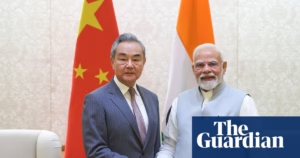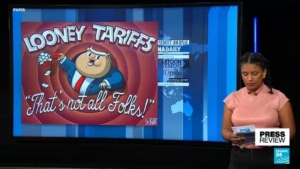US President Donald Trump introduced significant reciprocal tariffs on various trading partners on Wednesday, presenting this as the start of a new “golden age” aimed at revitalizing US industry and manufacturing jobs. This move marks a significant shift from the long-held belief in the benefits of free trade and globalization, risking retaliation from other countries and the potential onset of a new era of trade protectionism.
Key trading nations, such as China, Japan, South Korea, and Vietnam, have been among those facing the sharpest tariffs. The imposition of a 34% tariff on Chinese imports, in addition to the existing 20% tariffs, will raise the total tariff rate on China to 54% by April 9, posing a threat to US-China trade, which amounted to $582.4 billion last year. Beijing has vowed to retaliate against these measures.
This escalation could lead to a full-scale trade war between the two largest global economies, disrupting international supply chains and impacting Beijing’s long-term plan to stimulate economic growth. Experts warn that such actions could ignite protectionism and severely impair the global economy.
India, despite being referred to as a “great friend” by Trump, has not been exempt from these measures and faces tariffs of about 27% from April 9, which complicates ongoing negotiations for a bilateral trade accord between the US and India. New Delhi has stated it is examining the impact of these tariffs and remains committed to concluding these talks this year, even as it signals readiness to negotiate and adapt to mitigate the adverse effects.
Southeast Asia, which has also been impacted by these tariffs, faces the potential undermining of its “China+1” strategy, aimed at diversifying supply chains away from China. The region, including nations like Vietnam and Thailand which have become significant US trading partners, could see its export-related economic growth hindered by these measures. Governments in the region are leaning towards negotiation rather than retaliation, seeking to salvage their economic growth targets and maintain trade relationships with the US.
Overall, the imposition of these tariffs sets the stage for a complex period in global trade, challenging longstanding relationships and economic strategies while inviting a new era of trade policy uncertainty.
Source: https://www.dw.com/en/trump-trade-tariffs-put-asian-economies-in-a-bind/a-72129098?maca=en-rss-en-all-1573-rdf








